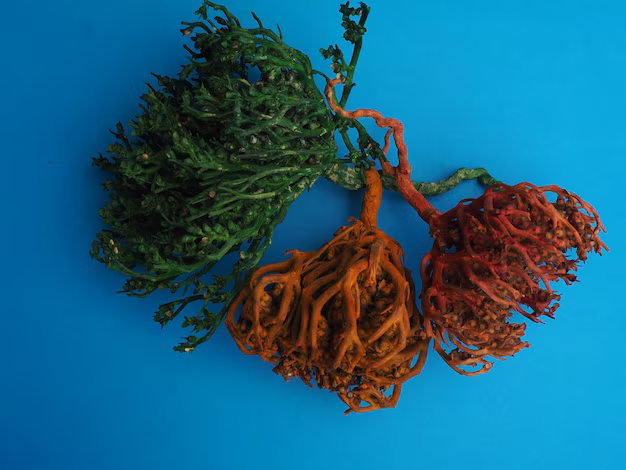Do Plants Get Cancer? Understanding the Intriguing World of Plant Pathology 🌿
Have you ever wandered through a garden and wondered if the lush greenery around you could suffer from ailments similar to those in humans and animals? One intriguing question that might cross your mind is: Do plants get cancer? The answer, while not straightforward, dives into the fascinating world of plant pathology and holds insights into plant biology that even the most avid gardener might find surprising.
Can Plants Develop Cancer-Like Diseases?
Understanding Cancer in Humans and Animals
Before we investigate the case for plants, it's important to understand what cancer is in the animal kingdom. Cancer is characterized by the uncontrolled division and growth of cells that can invade and destroy surrounding tissue. In humans and animals, cancer can spread from one area of the body to another through a process called metastasis.
Plant Cells: A Different Biology
Plants indeed suffer from cellular abnormalities, but their biological setup differs significantly from that of animals. Plant cells are bound tightly together by rigid cell walls. These walls prevent plant cells from moving in the same way animal cells do, providing a key distinction: While plant cells can indeed multiply uncontrollably, their movement does not resemble metastasis in animal cancers.
Plant Galls: A Close Cousin to Cancer
Galls are abnormal outgrowths on plants that can be caused by various factors, including insects, fungi, bacteria, and viruses. Although galls can look somewhat like tumors seen in animals, they do not spread to other parts of the plant. The formation of galls involves abnormal cell growth, yet this growth is typically organized and constrained by the plant's natural defense mechanisms.
Teratomas in Plants
Occasionally, plants develop structures known as teratomas, which are tumor-like outgrowths caused by mutations or viral infections. These structures arise when specific genetic mutations disrupt normal cell growth patterns. Although they resemble tumors in animals, teratomas in plants are largely stable and localized.
What Causes Abnormal Growths in Plants?
Pathogens and Environmental Factors
Plants encounter a variety of pathogens that can induce abnormal growths. These include:
- Bacteria: Agrobacterium tumefaciens causes crown gall disease, leading to tumor-like swellings.
- Viruses: Infections can disrupt normal growth patterns, causing deformities.
- Fungi: Some fungi can produce growth hormones that induce abnormal cell proliferation.
Environmental stress, such as damage from weather, pollution, or nutrient imbalances, can also lead to abnormal growths. However, these are usually responses to damage rather than intrinsic cellular issues.
Genetic Factors
Certain genetic mutations can lead plants to develop atypical growths. For example, the fasciculation mutation found in some cacti causes abnormal clustering of growth points, producing unique, eye-catching forms known as cristate or "crested" cacti.
How Do Plants Defend Against Abnormal Growth?
Innate Defense Mechanisms
Plants have intrinsic defense mechanisms to manage abnormal growth:
- Rigid Cell Walls: These prevent invasive spread and maintain structural integrity.
- Programmed Cell Death: Plants can effectively terminate cells that are damaged or dysfunctional, preventing proliferation.
Chemicals and Hormones
Plants produce chemicals that help control growth:
- Phytohormones: Hormones like auxins and cytokinins regulate cell division and expansion.
- Secondary Metabolites: These compounds can regulate plant growth and protect against pathogens that might induce abnormal growth.
Fascinating Related Topics
What Can Plants Teach Us About Cancer?
By investigating how plants handle uncontrollable cell growth, researchers hope to glean insights applicable to human cancer research. The ability of plants to localize and manage growth might inspire innovative approaches to isolate and treat tumors in animals and humans.
Genetic Engineering and Biotechnology
Advances in biotechnology use plants' abilities to manage cellular growth for genetic engineering purposes. An example is using Agrobacterium tumefaciens for genetic modification, exploiting its natural method of transferring DNA to plant cells.
Are Any Plant Diseases Similar to Human Cancers?
While plants do not develop cancer in the way animals do, their diseases can still affect their health and productivity. Understanding these diseases helps improve agricultural practices and crop yields, ensuring food security.
Conclusion: The Resilience and Intrigue of Plant Life
While plants don't get cancer as animals do, their biology and responses to cellular abnormalities present a world full of intrigue and resilience. From galls to teratomas, plants have evolved splendidly organized defenses to confine and control abnormal cell growth. Their unique mechanisms continue to fascinate botanists, researchers, and enthusiasts alike.
These insights are valuable not only in understanding plant health but also in inspiring potential breakthroughs in other fields, including medicine and biotechnology. As we continue to uncover the intricacies of plant life, we realize that these organisms, firmly rooted yet ever adapting, offer lessons in resilience and survival that extend well beyond the garden fence.
Key Takeaways 🌱
- Plants experience abnormal growths, such as galls, which resemble tumors but do not metastasize like animal cancers.
- Rigid cell walls and hormone regulation play critical roles in confining and controlling cell growth in plants.
- Pathogens and environmental stress can trigger abnormal growths in plants, yet plants have evolved defenses to manage these effectively.
- Research into plant pathology holds promise for advancements in human cancer treatments and biotechnological applications.
By exploring these dimensions, we can appreciate not only the complexity of plant life but also its potential to inform broader biological and medical conversations. 🌿

Related Articles
- Are Breast Cancer Lumps Painful
- Are Chills a Sign Of Cancer
- Are Colon Spasms a Sign Of Cancer
- Are Lytic Lesions Always Cancer
- Are Polyps Cancer
- Can a Blood Test Detect Cancer
- Can a Ct Scan Detect Cancer
- Can a Dexa Scan Show Cancer
- Can a Gastric Emptying Scan Show Cancer
- Can a Lung Biopsy Cause Cancer To Spread
